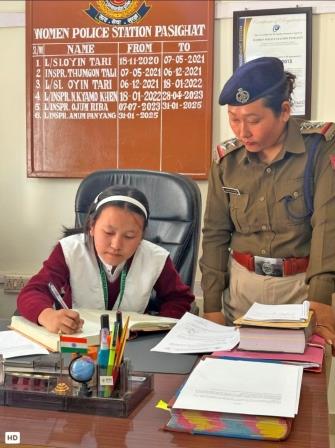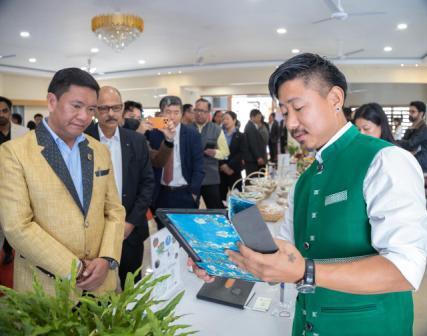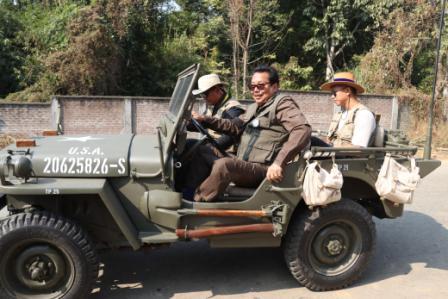-
Sona reviews PMGSY, VVP projects in Itanagar Circle
-
Lok Bhavan celebrates UP Diwas
-
 KGBV student leads WPS Pasighat on National Girl Child Day
KGBV student leads WPS Pasighat on National Girl Child Day
-
Meritorious students felicitated on National Girl Child Day
-
Awareness on POCSO held as part of National Girl Child…
-
Anini certifies 79 Nature Guides on National Tourism Day
-
 Startup success stories reflect potential of state’s youth: CM
Startup success stories reflect potential of state’s youth: CM
-
 Mein participates in vintage Willys Jeep Rally, inaugurates World War…
Mein participates in vintage Willys Jeep Rally, inaugurates World War…
-
DG Assam Rifles visits Khonsa Battalion
-
Governor advises DGP to take firm action on illegal migration
Even if a substantial fanfare was observed while mooting the idea of online format as the most-suitable alternative for continuance of school education in the country amid the prevailing Covid-19 pandemic, the recently released NCERT survey report that tried to find the actualities has a different story to tell. The survey has exposed deep drawbacks across a host of factors that by nature are fundamentals including a few related to basic infrastructure. The findings, in a way, have also contradicted Digital India’s tall claims of enviable penetration and therefore it must be realised that a lot of efforts are still needed to be made for making the online path of delivering school level education truly successful.
Devised by NCERT, the survey was executed by KVS, NVS and CBSE and covered 34,000 participants comprising students, parents, teachers and school principals from KVs, NVs and CBSE-affiliated schools across the country. Although the sample size can only be termed as moderate if viewed in context of India’s mammoth school education dimension, its findings can be accepted as a just representation of the gross on-ground picture. Among key deficiencies discovered, non-possession of smartphones and laptops, the bare essential tools for engaging in any online learning process by as many as 27 % students will be a real shocker. Furthermore, 28 % of students and parents have expressed dismay over the fact that intermittent or lack of electricity are posing as major hurdles in teaching-learning engagement. Among all subjects, it's not surprising that Maths is proving much difficult for pupils to grasp through online mode as there are several concepts that require face-to-face interaction and continuous support and monitoring from teachers which only traditional classroom-based classes can deliver. Same is the case for Science as lab-based experiments without which learning inputs will remain superficial are just not possible due to the inherent limitations of e-learning. The survey has also thrown light regarding lesson delivery qualities and it has been found that a good percentage of teachers are still not well-versed with online teaching methodologies. It will be inappropriate to blame the teachers for this since the online teaching-learning methodology is a totally new concept and very little preparation prior to its rolling out in terms of training or gadget handling had been made. No additional survey will be necessary to conclude that Arunachal suffers from the above infirmities and perhaps in greater degrees than the national averages.
Acting on the survey, Students' Learning Enhancement Guidelines have also been issued. But, even then, how can they be implementable in states like Arunachal, where in many areas, both internet and electricity are far from a healthy average?
The Central and state government must work in tandem to find a viable solution fast.

Kenter Joya Riba
(Managing Editor)She is a graduate in Science with post graduation in Sociology from University of Pune. She has been in the media industry for nearly a decade. Before turning to print business, she has been associated with radio and television.
Email: kenterjoyaz@easternsentinel.in / editoreasternsentinel@gmail.com
Phone: 0360-2212313

